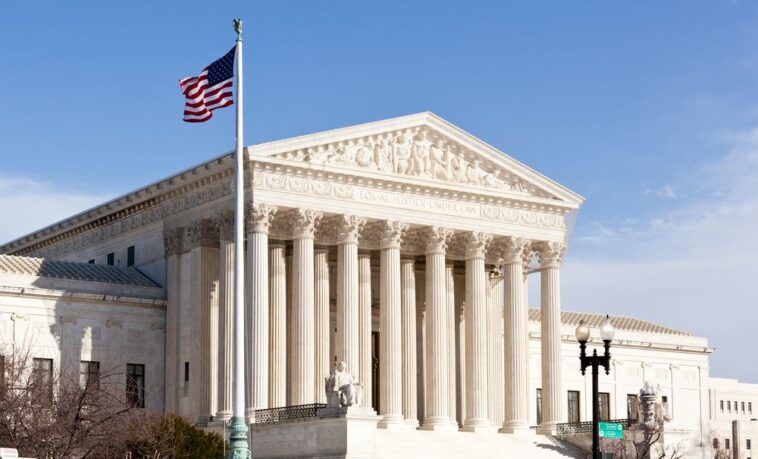Federal court proceedings are set to commence on Monday regarding a suit that disputes a policy initiated under President Donald Trump’s administration. The policy targeted campus faculty and students involved in protests supporting Palestinian rights and their subsequent arrests and deportations. Various university groups have united to file this lawsuit against the former President and his administration in what is considered to be one of the first of its kind.
The plaintiffs want the current sitting judge, U.S. District Judge William Young, to establish that this policy contradicts the principles enshrined in the First Amendment and the Administrative Procedure Act. The latter legislation outlines the methods by which federal agencies create and enforce regulations.
The implementation of the policy has reverberated rapidly and deeply, stirring terror into faculty and students who are not U.S. citizens. As stated by the plaintiffs in their preliminary trial brief, many have been frightened into self-censorship.
In response to fear and uncertainty, those students and faculty members affected have been observed to avoid political protests and refrain from openly associating with pro-Palestinian groups. Furthermore, they clean their social media profiles and retreat from public conversations that may be politically sensitive. This has led to an academic environment where they are hesitant to openly share or discuss their views and knowledge.
A number of academicians are slated to stand witness during the trial. They are expected to provide testimony on how this particular policy and the subsequent crackdown on dissent triggered them to step back from their advocacy for Palestinian human rights and from expressing open critique of the policies of the Israeli government.
The U.S. government began exercising its immigration enforcement powers more forcefully on international scholars and students once President Trump was sworn into the office. Several American universities have felt the brunt of this crackdown. Widespread protests, including criticism of the Palestinian militant group, Hamas, has led to label of ‘pro-Hamas’ being assigned to protestors.
The lawsuit singles out a number of activists, among whom is Mahmoud Khalil, a Palestinian activist and alum of Columbia University. After spending over three months in federal immigration detention, Khalil was released recently. His case stands as a poignant example of the Trump administration’s harder line against campus dissent.
Rumeysa Ozturk, a student from Tufts University, is another name mentioned in the lawsuit. Having spent a total of six weeks in a Louisiana-based immigration detention, she was finally released in May. Her arrest, while she was simply strolling in a Boston suburb, occurred following her co-authored critique of her school’s initial response to the Gaza war.
The lawsuit goes on to insinuate that the Trump administration pressured universities to pursue specific individuals for disciplinary action and instigated a monitoring program on social media. After Khalil’s arrest, Trump’s own statement that it would be the ‘first arrest of many to come’ was used by plaintiffs as evidence of his administration’s planned policy.
In response, the government defense stated in court documents that the plaintiffs are essentially objecting to a policy which they themselves have imagined. The defense points out the lack of explicit documentation or definition of this supposed policy in any legal text, regulation, rule, or any written form.
The government further argued that the plaintiffs have misconstrued the applicability of the First Amendment, pointing out that in the context of immigration, Supreme Court precedents interpret the amendment differently than they would in domestic circumstances.
In counter to these arguments, the plaintiffs maintain that the trial will reveal evidence demonstrating that the Trump administration had indeed executed the disputed policy. They assert that this was carried out in many ways, including providing formal guidance to cancel visas and green cards, and setting up a mechanism to identify those participating in protests supporting Palestine.
The defendants, according to the plaintiffs, have openly admitted to their policy, justified it, and publicly taken credit for it. It was not until the policy faced legal challenges that they began to deny that it even existed at all.
The plaintiffs are steadfast in their belief that evidence presented during the trial will undeniably demonstrate the tangible existence of said policy, despite denials from the ex-President’s administration.

